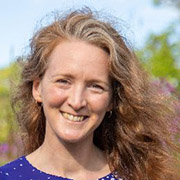A .gov website belongs to an official government organization in the United States.
A lock () or https:// means you've safely connected to the .gov website. Share sensitive information only on official, secure websites.

This presentation provides an overview of NASA's Global Modeling and Assimilation Office (GMAO) high-resolution global forecast and reanalysis products for weather, aerosols, and air quality which are used to support NASA missions like TEMPO, field campaigns, and stakeholders interested in Health and Air Quality. The NASA Global Earth Observing System (GEOS) model radiatively coupled to GOCART aerosol module assimilates aerosol optical depth (AOD) to constrain the model's background AOD in order to have the best historical estimate and forecasts of AOD and particulate matter. Furthermore, the GEOS model has been expanded to provide global near-real-time 5-day forecasts of atmospheric composition at unprecedented horizontal resolution of 0.25 degrees (~25 km). This composition forecast system (GEOS-CF) combines the operational GEOS weather forecasting model with the state-of-the-science GEOS-Chem chemistry module to provide detailed analysis of a wide range of air pollutants such as ozone, carbon monoxide, nitrogen oxides, and fine particulate matter (PM2.5). We discuss current capabilities of the GEOS Constituent Data Assimilation System (CoDAS) to improve stratospheric and tropospheric composition modeling and forecasts and possible future directions, notably incorporating new observations and machine learning techniques to speed-up chemistry for ensemble DA and higher resolution forecasts.
Emma Knowland is a lead scientist in the development of NASA GMAO's atmospheric composition forecast system, GEOS-CF. She directs the transition from research & development to the production system and leads the evaluation of stratospheric composition in the GEOS-CF. Dr. Knowland's research interests include both chemical and dynamical drivers of stratospheric and tropospheric composition. She is a member of the World Meteorological Organization (WMO) Global Air Quality Forecast and Information System (GAFIS) Steering Committee and Co-lead of Group 2 "Best practices and challenges for Air Quality Forecast Systems."
ALL Seminar attendees agree not to cite, quote, copy, or distribute material presented without the explicit written consent of the seminar presenter. Any opinions expressed in this seminar are those of the speaker alone and do not necessarily reflect the opinions of NOAA or CSL.